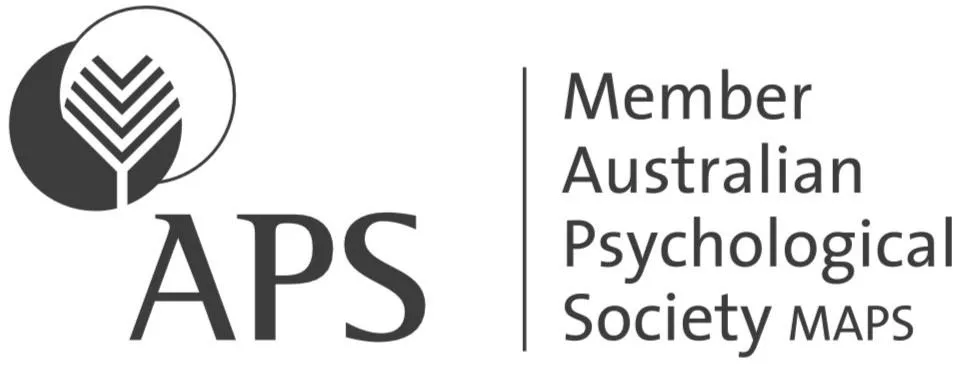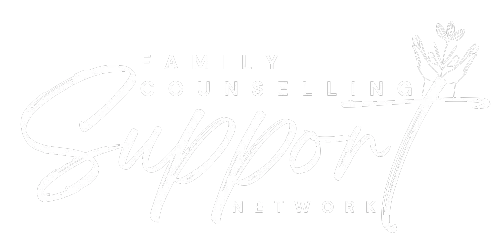Book a session with Kerry
Please choose a date and time below that suits you for your appointment.
After receiving your payment you will be sent an email with the Zoom link and a receipt.

Kerry Maloney
HEAD COUNSELLOR
Kerry offers a warm, energetic and positive approach to therapy. As a registered Psychologist and a full M
r Australia and New Zealand, including many rural Australia regions, and her sessions are largely run via Zoom to ensureember of the Australian Psychological Society (MAPS), Kerry has over 30 years of experience working with adults, couples and adolescents to solve a broad range of issues which can arise during the separation and divorce process: anxiety, stress, grief, relationship & parenting issues, depression, communication strategies, self-esteem, adjustment and resilience building.
From her diverse work globally, Kerry also has direct experience in understanding the impact of culture on relationships and families. She uses a variety of evidenced-based treatment approaches - Cognitive-Behavioural (CBT), Mindfulness and Acceptance & Commitment Therapy (ACT).
Kerry offers a non-judgmental, safe place to share thoughts and feelings while offering the guidance, compassion and support to make robust choices, navigate challenges and develop fresh coping strategies.
As a divorced mother-of-two, she is passionate about resolving conflict and achieving amicable outcomes for her individual clients and their families. Through guided facilitation to heal from the pain of separation & divorce, she thrives on helping both men and women reclaim their sense of self and create a brighter and more fulfilling future.

Sherry is a registered psychologist, educator and mother who is passionately dedicated to uplifting the mental health and well-being of her clients at every stage of life. She excels at helping you develop an effective tool kit of strategies and coping skills, to improve your communication skills and enhance family relationships.
She specialises in:
Child anxiety
Teens & Adult support
Family Relationships
Parenting help
Peri/Menopause support
Peri and Post Natal support

Susan is a lawyer who majored in psychology, counselling and coaching. She has worked for over 30 years with clients who are considering whether to stay or go, have already separated or are now divorced, to empower them to consider all the options and develop a plan going forward , which best supports their emotional, parenting, financial and post divorce solutions.
Separation &
Divorce Counselling and Coaching
Co-parenting support
Questions about our online
Counselling or Coaching Services?
Medicare rebate or private medical insurance claim for psychological services?
Most clients prefer to book directly with with our counsellors. No referral is required to access this counselling service.
During the first session, you can discuss the benefits of seeking a Mental Health Care Plan from your GP should you wish to pursue this path moving forward and you are booking with a registered psychologist. If you require a Mental Health Care Plan (MHCP) you will need to make a long appointment with your GP and they will make an assessment about whether you are eligible.
All of our registered psychologists are registered with Medicare and you will need a referral from a GP if you wish to claim Medicare rebates. Under the Better Access program you can receive a partial rebate for up to 10 individual sessions in a calendar year.
All our psychologists are registered with private health insurance providers in Australia. If you have private health insurance, you may be eligible to claim rebates for psychological sessions. The level of cover and any applicable waiting periods vary between providers and depends on your extras cover policy.
To find out if you are eligible and/or how much funding you are entitled to claim for psychological sessions, please contact your private health insurance.
Where applicable, some of our psychologists also see clients who are self-managed or plan-managed through NDIS at the current rate for NDIS.
Cancellation or missed sessions policy
Given the nature of our support services, last minute cancellations are costly, and it means that other clients may miss out on receiving the required support. For cancellations within 48 hours of the scheduled appointment there is a $65 part fee payment. For less than 24 hours cancellation notice or a non-show, the full session fee will need to be charged. These fees are refunded however if the session can be filled at the last minute.
How are your counselling and coaching sessions held?
We know our clients are time poor. For your convenience, all our counselling or coaching sessions are now available online via Zoom.
You can book your appointment online via this website.
Zoom allows us to connect with you via video and audio. It just requires you to click on a link to join. You can sign up to Zoom to create a FREE account and download the Zoom Client for Meetings. Zoom does require internet connections.
After you book you will be sent a reminder about the booking and emailed a link to connect at the booked time. You are also likely to be sent a client information form to complete prior to your initial consultation to enable our Counsellors and Coaches to be better prepared for your first meeting.
If you are unable to make any of the dates available, please email us to see if we can accommodate an alternate time for you: [email protected]
If you live in Brisbane or the Gold Coast, Queensland, we are available for face to face consultations. Please email us at [email protected] if you would like to arrange an in person appointment.

Catch up on our latest blogs

Economic Abuse Awareness Day
Economic and financial abuse is a form of domestic abuse in Australia.
It often occurs in the context of intimate partner violence, and involves the control of a partner or ex-partner’s money and finances, as well as the things that money can buy.
Economic abuse and financial abuse involve similar behaviours, but it can financial abuse is often thought of as a subcategory of economic abuse. Economic abuse encompasses the many ways that an abuser may control someone’s economic situation, including employment, food, basic necessities, medication, transport and housing, for example. Financial abuse can often be thought of as controlling the actual money by stealing, gambling, coercing someone into taking on debt, controlling their allowance each week,
1 in 6 women in the Australia have reportedly experienced economic abuse by a current or former partner.
Economic abuse can include exerting control over income, spending, bank accounts, bills and borrowing. It can also include controlling access to and use of things like transport and technology, which allow a person to work and stay connected, as well as property and daily essentials like food and clothing. It can include destroying items and refusing to contribute to household costs. Gambling away your financial security and destroying your credit rating.
Refusing to pay child support and not financially disclosing assets and debts during financial property settlements are also a way of economically abusing a person and intentionally controlling them.
This type of abuse is a form of coercive and controlling behaviour. Economic abuse rarely happens in isolation and usually occurs alongside other forms of abuse, including physical, sexual and psychological abuse. 95% of cases of domestic abuse involve economic abuse. It can continue long after a leaving and can have lifelong effects
This type of abuse is designed to create economic instability and/or make one partner economically dependent, which limits their freedom. Without access to money and the things that money can buy, it is difficult to leave an abuser and access safety. Someone experiencing this type of abuse can become trapped in a relationship with the abuser, unable to resist the abuser’s control and at risk of further harm. In this way, economic safety underpins physical safety.
The impact of economic abuse makes leaving and rebuilding lives more challenging for survivors and their family. Many victim-survivors leave with large amounts of debt and poor credit ratings, affecting their long-term economic stability.
Red Flag (warnings) of economic/financial abuse
Economic abuse can take many forms. The perpetrator/abuser:
Sabotages your income and access to money:
prevent you from being in education or employment
limit your working hours
takes your pay
refuse to let you claim government payments/ benefits or take all the benefits
take children’s savings or birthday money
refuse to let you access a bank account
making you work in a family business without pay
give you a small allowance for necessities only
takes any windfall you get such as an inheritance
Restrict how you use money and the things that you own:
control when and how money is spent
dictate what you can buy
make you ask for money
give you a small allowance to cover necessities only
check your receipts
make you keep a spending diary
make you justify every purchase made
control the use of property, such as a mobile phone or car
insist all economic assets (eg savings, house) are in their name
keep financial information secret
Exploits your economic situation:
steal your money or property
steal your identity or inheritance
cause damage to your property
refuse to contribute to household costs
spend money needed for household items and bills
misuse money in joint bank accounts
insist all bills, credit cards and loans are in your name and make you pay them
build up debt in your name, sometimes without your knowledge
destroying your credit rating affecting your future financing ability
There is help
If you have experienced economic or financial abuse, you are not alone. There are people and organisations that can help .Refer to www.dvsupporthub.com for information on various services that can help as well as ways to help you financially get back on your feet.
Call 1800RESPECT for immediate assistance



We are committed to protecting your personal information and respecting your privacy. This website uses cookies to analyze website traffic and optimise your website experience. By accepting our use of cookies, your data will be aggregated with all other user data.
DISCLAIMER: The material contained on this website is for general educational and information purposes only and is not a substitute for professional legal, financial, medical or psychological advice or care. While every care has been taken in the information provided, no legal responsibility or liability is accepted, warranted or implied by the authors or Family Counselling Support Network and any liability is hereby expressly disclaimed. For specific advice please contact us at [email protected]. All information contained on the website remains the intellectual property of Family Counselling Support Network and is for your personal educational use only. The information must not be reproduced or distributed without the express permission of Family Counselling Support Network.
Family Counselling Support Network acknowledges and respects the First Nations Custodians of the land where our offices stand, and where we work to help Australians. We pay respects to their Elders, past present and emerging, lore, customs and creation spirits. We recognise that these lands have always been places of ceremony, teaching, research and learning, and we acknowledge the important role Aboriginal and Torres Strait Islander peoples play in our community.
We are committed to providing an inclusive and accessible environment where people and communities of all identities and backgrounds are accepted, safe and celebrated.
Privacy Policy | Terms and Conditions

